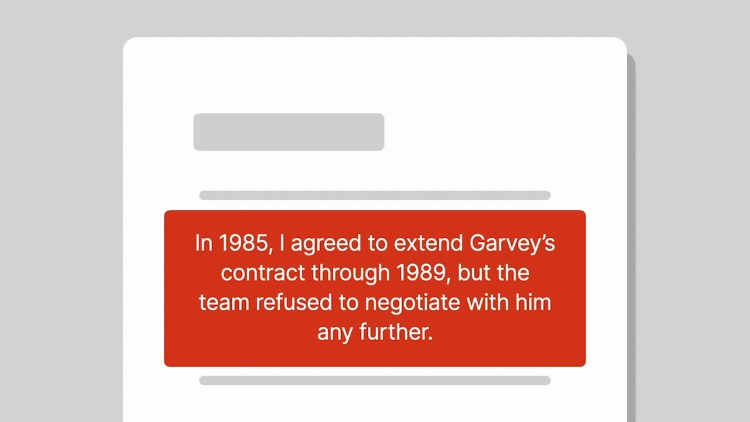Major League Baseball Players Association v. Garvey
Supreme Court of the United States
532 U.S. 504 (2001)

- Written by Eric Cervone, LLM
Facts
In the 1980s, the Major League Baseball Players Association (the association) (defendant) filed grievances against major league clubs (the clubs), claiming the clubs had colluded to drive down the contract prices of free-agent players. Arbitrators found collusion by the clubs and damage to players. The association and the clubs entered into an agreement in which the clubs established a fund to be distributed to the players who were affected by the collusion. Players were eligible to receive funds only if a club offered them an extension prior to collusion but then withdrew the offer after the collusion scheme was initiated. The association was charged with evaluating players’ claims and recommending distribution plans for the claims. Steve Garvey (plaintiff) was a retired first baseman for the San Diego Padres. Garvey alleged that his contract with the Padres was not extended due to collusion. The association rejected Garvey’s claim because he presented no evidence that the Padres had offered to extend his contract. Garvey then brought the issue to an arbitrator, who also denied the claim. The arbitrator questioned the credibility of evidence Garvey presented and stated that substantial doubt existed as to whether the Padres offered Garvey an extension. Garvey moved in federal court to vacate the arbitrator’s award. The trial court denied the motion. The appeals court then reversed the decision. The appeals court questioned the arbitrator’s decision to question the credibility of Garvey’s evidence. The appeals court remanded the case back to the trial court with an instruction to award Garvey the amount he claimed. The case eventually made its way to the Supreme Court of the United States.
Rule of Law
Issue
Holding and Reasoning (Per curiam)
What to do next…
Here's why 907,000 law students have relied on our case briefs:
- Written by law professors and practitioners, not other law students. 47,100 briefs, keyed to 996 casebooks. Top-notch customer support.
- The right amount of information, includes the facts, issues, rule of law, holding and reasoning, and any concurrences and dissents.
- Access in your classes, works on your mobile and tablet. Massive library of related video lessons and high quality multiple-choice questions.
- Easy to use, uniform format for every case brief. Written in plain English, not in legalese. Our briefs summarize and simplify; they don’t just repeat the court’s language.





